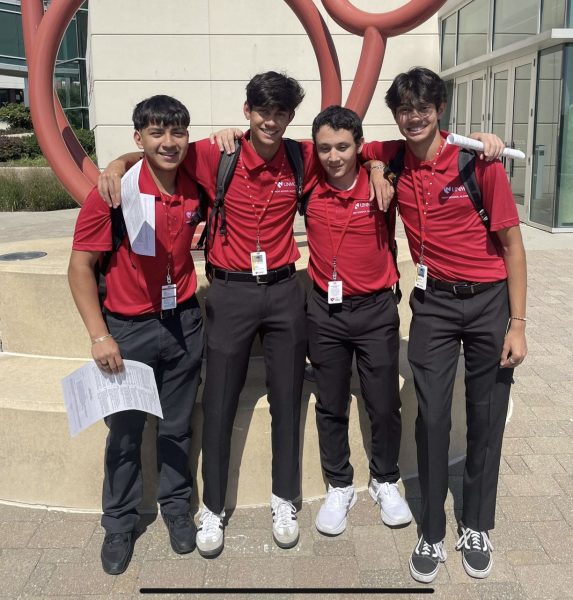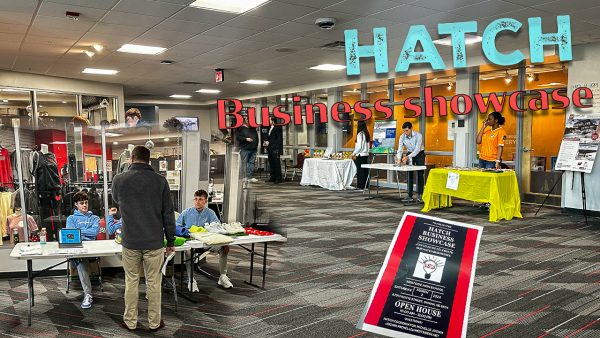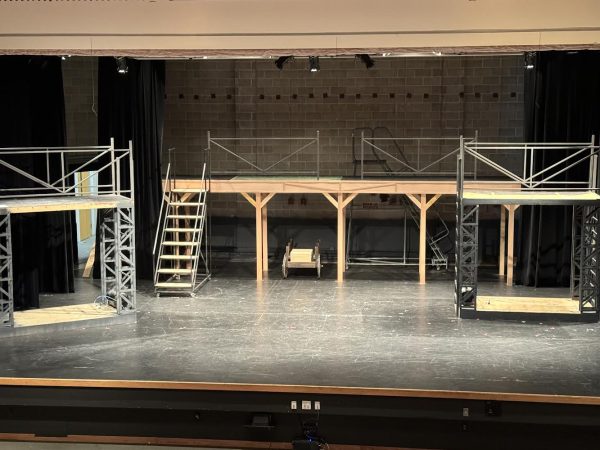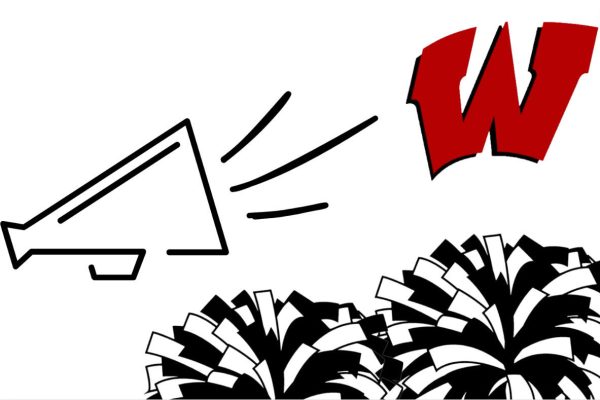Westside Student and Teacher Reflect on Sustainability Efforts in the District
The fashion department is making efforts to be sustainable by recycling materials and giving old clothing new life.
As climate change becomes an increasingly hot topic in politics, it is important to understand the relevance of sustainability in our community. Westside’s fashion program’s efforts to recycle and to reuse are a clear step in the right direction towards making Westside more sustainable. FCS instructor MaryJo Losen said the program makes efforts to give old clothing new life and to waste no scraps of fabric.
“We do a lot of recycle programs and recycle projects, [and] we also use scraps to make crazy quilt squares, and then we make quilts out of them and donate them to shelters,” Losen said. “Students can redesign clothing that they’ve bought or made, so if it doesn’t fit or serve a purpose they can change the way it is used. Sometimes students take a romper and turn it into a shirt or take a dress and make it into a romper. We go with it all.”
Losen said sustainability needs to be taken into consideration by all, starting with paying attention to what you buy.
“[Sustainability] should be important to everyone on the planet,” Losen said. “I don’t think a lot of segments of our society understand that people should look at where their clothes come from and the quality. It’s not just about price, there’s other issues.”
Senior Camille Beaulieu said she is passionate about sustainability and that there should not be a divided argument over the topic.
“My opinion on sustainability is that the topic shouldn’t be an opinion topic,” Beaulieu said. “The need for processes to become more sustainable for the sake of our earth is undeniable, as long as you look at the science. It shouldn’t be up for debate. The science for human-caused climate change is about as clear as the existence of gravity and nobody seems to question that.”
Beaulieu said there are lots of things that students can do to transition into a more sustainable lifestyle.
“Eat less meat, refuse single-use plastic, compost organic waste like food scraps, sort your trash correctly, recycle only what is accepted in Omaha and use the Hefty Energy Bag,” Beaulieu said. “You can also be aware of your consumption habits, join environmental groups like Warrior Planet or Students for Sustainability Omaha and spread the word.”
Beaulieu said if we do not make these changes soon, climate change could affect our generation’s future.
“We have very limited time to implement changes to reverse the damage done to our planet before they become, well, irreversible,” Beaulieu said. “2020 has been a glimpse into our future without change. Natural disasters, from flooding and fires to hurricanes and a pandemic, can all be traced back to climate change. Imagine the amount of money insurance companies are spending to rebuild communities struck by these natural disasters… and they will spend at least that much in the future when they are hit again.”
Beaulieu said not everyone has to live a completely sustainable life, but that small efforts can create a big difference.
“Perfection is not the goal, as long as you try your best to make the changes you can,” Beaulieu said. “One hundred people being imperfectly sustainable is better than one person achieving a perfect zero-waste lifestyle.”
Your donation will support the student journalists of Omaha Westside High School. Your contribution will allow us to purchase equipment and cover our annual website hosting costs.

Hi, my name is Jordyn Knight! I'm a staff writer for Westside Wired this year. I'm a junior and a fun fact about me is that I have four cats. If you have...
Hi, my name is LeMario Somerville! I'm a staff writer for Westside Wired this year. I'm a junior and a fun fact about me is that I play lacrosse. If you...

















